 |
| "Nord Stream 2 is damaged, but one pipeline is safe and gas can be supplied to Europe through it, but Germany is not open," the Russian president said. (Source: Adobe Stock) |
World economy
OPEC pledges to continue supporting market stability
OPEC Secretary General Haitham Al-Ghais said on February 12 that the group is negotiating with a number of countries interested in joining the alliance between OPEC and its allies, also known as OPEC+, and affirmed that OPEC is committed to continuing to support the stability of the energy market despite current geopolitical tensions in the world.
In an interview with the ENA news agency of the United Arab Emirates (UAE), Mr. Al-Ghais affirmed that the names of countries wishing to join OPEC+ will be announced after the consultation process is completed.
“By facilitating dialogue and joint efforts in areas such as technology, the OPEC+ Cooperation Charter aims to stabilize the oil market and benefit all stakeholders in the oil industry, including producing and consuming countries,” the OPEC Secretary General stressed.
Regarding the issue of potential production adjustments among OPEC member countries, Mr. Al-Ghais said that the successive achievements of the Declaration of Cooperation have motivated the participating countries to further strengthen their efforts to maintain market stability. The OPEC Secretary General also highlighted the recent agreement among OPEC+ members to extend the voluntary production cut plan until the end of 2024.
OPEC+ members, including Saudi Arabia, Russia, Iraq, the United Arab Emirates, Kuwait, Kazakhstan, Algeria and Oman, announced additional voluntary production cuts through the end of March 2024 to further support global oil markets and ensure energy market stability. At a virtual meeting earlier this month, the OPEC+ Joint Ministerial Monitoring Committee highlighted compliance by OPEC and non-OPEC producers.
US economy
* A survey released by The Conference Board on February 8 shows that American business leaders are feeling more optimistic about the direction of the world's largest economy , even as their worries about the upcoming presidential election are increasing.
According to a survey, a measure of CEO confidence has shown that, for the first time in two years, optimism has outweighed pessimism.
Specifically, 36% of CEOs surveyed expect US economic conditions to improve in the short term, up significantly from the 19% measured in the fourth quarter of 2023. This number reflects businesses' growing confidence in a "soft landing" for the US economy - something that seemed very unlikely a year ago.
Chinese Economy
* According to the Chinese Ministry of Commerce (MOC), the country has signed free trade agreements (FTAs) with 29 countries and territories as of the end of January 2024.
Government figures show that trade between China and the above partners accounts for about one-third of the country’s total trade. China has made new breakthroughs in both FTA negotiations and signing last year.
In 2023, China signed FTAs with Ecuador, Nicaragua and Serbia, as well as signed a protocol to upgrade the FTA with Singapore and made significant progress in initial negotiations on an FTA with Honduras.
* A recently released study by the China Tourism Academy predicts that the country's tourism market will return to its bustling state in 2024 .
According to the research report, Chinese people are estimated to make about 6 billion domestic trips this year, up from nearly 4.9 billion trips in 2023. Meanwhile, the total number of Chinese tourists traveling at home and abroad will exceed 260 million.
China is looking ahead to a bumper tourism season, with travel agencies and industry players expecting record-breaking passenger numbers during the upcoming Spring Festival and adding fresh impetus to the country's economic recovery.
European Economy
* The Czech Chamber of Agriculture said on February 13 that agricultural organizations in Central and Eastern Europe are calling for massive protests by farmers across the region on February 22 to protest the agricultural policy of the European Union (EU).
Earlier, agricultural organizations from the Czech Republic, Slovakia, Hungary, Poland, Latvia and Lithuania submitted a series of requests to the EU Agriculture Commissioner, including compensation for farmers for complying with new regulations on environmental protection, reducing red tape and increasing transparency in the subsidy system, as well as clearer regulations on Ukrainian agricultural exports to the EU market.
* According to the assessment of the current situation of the Russian Federation's economy prepared by the Ministry of Economic Development, the country's economic growth in 2023 will reach its highest level in the past decade , except for the post-Covid-19 period.
The assessment noted that according to the first estimate of Rosstat (General Statistics Office of the Russian Federation), GDP growth in 2023 is 3.6%, higher than most expectations. Compared to the previous two years, the growth rate reached 2.3%. According to the ministry's forecast, Russia's GDP in 2024 will increase by 2.3%, while the Central Bank of the Russian Federation expects growth in 2024 to be 0.5-1.5%.
* Russia's TASS news agency quoted Russian President Vladimir Putin as saying that Germany will not continue operating the remaining Nord Stream 2 pipeline . (Nord Stream 2), although Moscow is ready to supply gas via this route.
In an interview with American journalist Tucker Carlson, published on February 9, President Putin said: “The problem is not only about the Nord Stream 1 explosion. Nord Stream 2 is damaged, but one pipeline is safe and gas can be supplied to Europe through it, but Germany does not open it.”
The Nord Stream 1 and 2 pipelines - which transport natural gas from Russia to European markets via Germany - were severely damaged in September 2022 after explosions at the bottom of the Baltic Sea.
* On February 9, Polish farmers blocked roads and held many protests at border checkpoints with Ukraine . This was an action to protest the import of agricultural products from this neighboring country.
Poland has been a staunch supporter of Ukraine, but economic conflicts have soured relations between the allies. Farmers in Poland say the opening of the European Union (EU) market to Ukrainian agricultural products has led to lower prices for their domestic goods and created unfair competition.
* According to data from the German Federal Statistical Office (Destatis), China will continue to be Germany's largest trading partner in 2023. This is the eighth consecutive time that China has topped the list of largest trading partners of Europe's leading economy.
According to Destatis, in 2023, the trade volume between Germany and China will reach around 253 billion euros (about 270.73 billion USD). Germany's trade deficit with China remains very high at 58.4 billion euros, just below the record deficit of 86.1 billion euros in 2022.
Germany's second largest trading partner is the United States, with a total trade volume of 252.3 billion euros, just 0.7 billion euros less than trade with China. Neighboring Netherlands is Germany's third largest trading partner, with a total import-export turnover of 214.8 billion euros.
Japanese and Korean Economy
* The latest figures on Japan's economic growth are set to confirm that the country has slipped from third place to fourth in the world in 2023 , weighed down by a weak currency and an ageing population.
While the economy is seen returning to average annual growth of 1.2% in the fourth quarter of 2024 after a sharp slowdown in the summer, figures for the year are almost certain to show Japan's GDP falling behind Germany's in dollar terms.
* The government-backed Development Bank of Japan (DBJ) will invest more than 150 billion yen ($1 billion) to build resilience in the supply chains of semiconductors , batteries and other industries critical to the nation's economic security. The investments will be disbursed over two years from fiscal 2024 in the form of equity injections and subordinated debt.
* South Korean President Yoon Suk Yeol on February 13 instructed the Presidential Office to study tax incentives and other support programs to encourage domestic businesses to build programs to support employees giving birth .
South Korea's total fertility rate - the average number of children a woman is expected to have in her lifetime - was recorded at a record low of 0.78 in 2022, far below the replacement level of 2.1 needed to maintain the country's population at 51 million.
* South Korea's coffee import turnover has exceeded 1 billion USD for two consecutive years as more and more Koreans favor and regularly use this beverage.
According to data from the Korea Customs Service, the total value of imported green and roasted coffee reached $1.11 billion in 2023, up from $1.3 billion a year earlier. South Korea's coffee imports have been steadily increasing since 2018 as more South Koreans enjoy the beverage.
ASEAN Economy and Emerging Economies
* Laos aims to attract 6.2 million domestic and foreign tourists to generate revenue of about 1.3 billion USD in 2024, a sharp increase compared to the target of 4.6 million visitors the country previously set by the end of 2023.
To achieve the above goal, the authorities will implement a series of measures such as advertising Visit Laos Year in Lao, English and Chinese; organizing meetings between businesses in the tourism sector; organizing visits to some famous tourist destinations in Laos for social media influencers to encourage them to post their visits on YouTube...
* Indonesia is facing a shortage of high-quality rice at modern retail outlets as producers set high prices.
Accordingly, rice prices at traditional markets have increased significantly, from about Rp 13,000 (USD 0.83)/kg to about Rp 16,000-Rp 17,000 (USD 1.02-1.08)/kg. In response to this situation, the head of the National Food Authority (Bapanas), Arief Prasetyo Adi, said that the agency is implementing five measures to ensure rice supply and stabilize prices nationwide.
The measures include: Speeding up the unloading process for imported rice vessels at various ports across the country; continuing the distribution of 200,000 tonnes of commercial rice from the State Logistics Agency (Bulog), including 50,000 tonnes to the Cipinang Central Rice Market in Jakarta; distributing rice under the Food Supply and Price Stabilization Program (SPHP) to traditional markets and retail outlets, and continuing the nationwide Low-cost Food (GPM) campaign.
* Malaysia's largest port operator, Westports Holdings, is looking for outside strategic investors to fund an $11.1 billion port expansion plan that will nearly double capacity in the coming decades.
Westports is the second largest port in Southeast Asia and is planning to increase capacity to 27 million TEUs - from the current 14 million TEUs - during a concession period that runs until 2082.
* Egyptian Prime Minister Mostafa Madbouli said on February 12 that the country is focusing on accelerating economic growth with the goal of creating 7-8 million more jobs between now and 2030.
According to Mr. Madbouli, the African country is looking to support economic sectors, especially infrastructure, to help attract more domestic and foreign investment.
Source












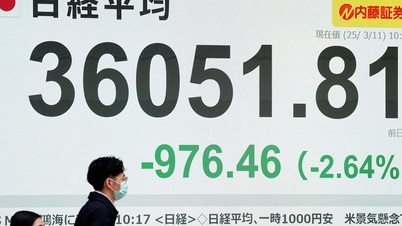



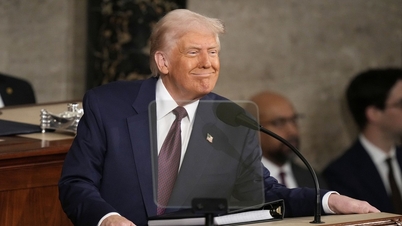

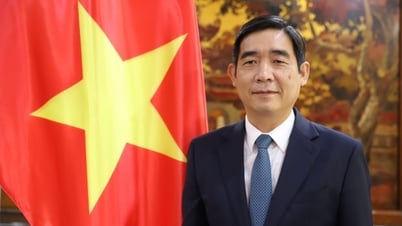


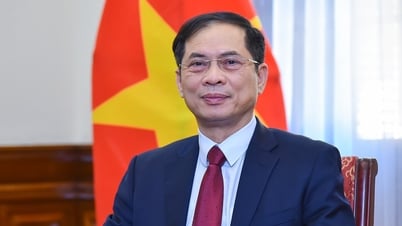







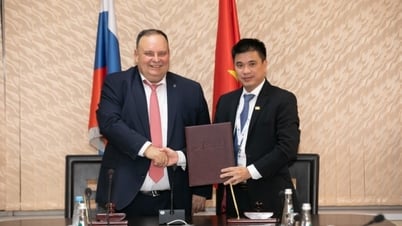

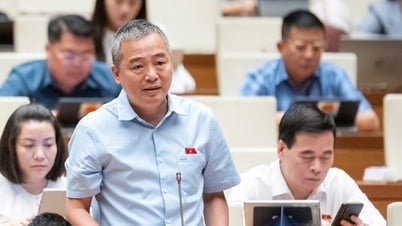


![[Photo] Prime Minister Pham Minh Chinh works with the Standing Committee of Thai Binh Provincial Party Committee](https://vphoto.vietnam.vn/thumb/1200x675/vietnam/resource/IMAGE/2025/5/12/f514ab990c544e05a446f77bba59c7d1)
![[Photo] Prime Minister Pham Minh Chinh receives Swedish Minister of International Development Cooperation and Foreign Trade](https://vphoto.vietnam.vn/thumb/1200x675/vietnam/resource/IMAGE/2025/5/12/ae50d0bb57584fd1bbe1cd77d9ad6d97)
































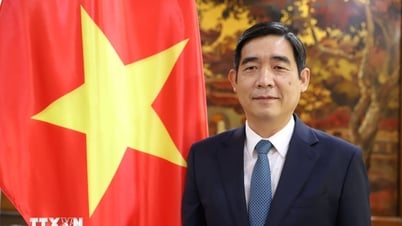


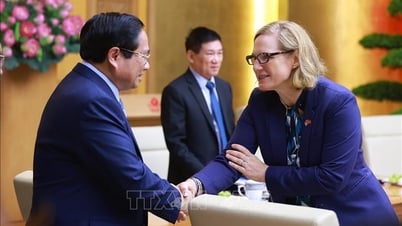







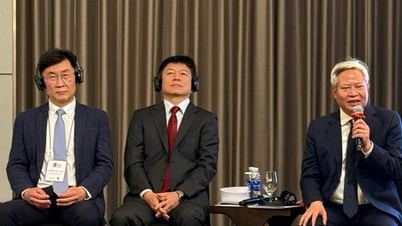























Comment (0)